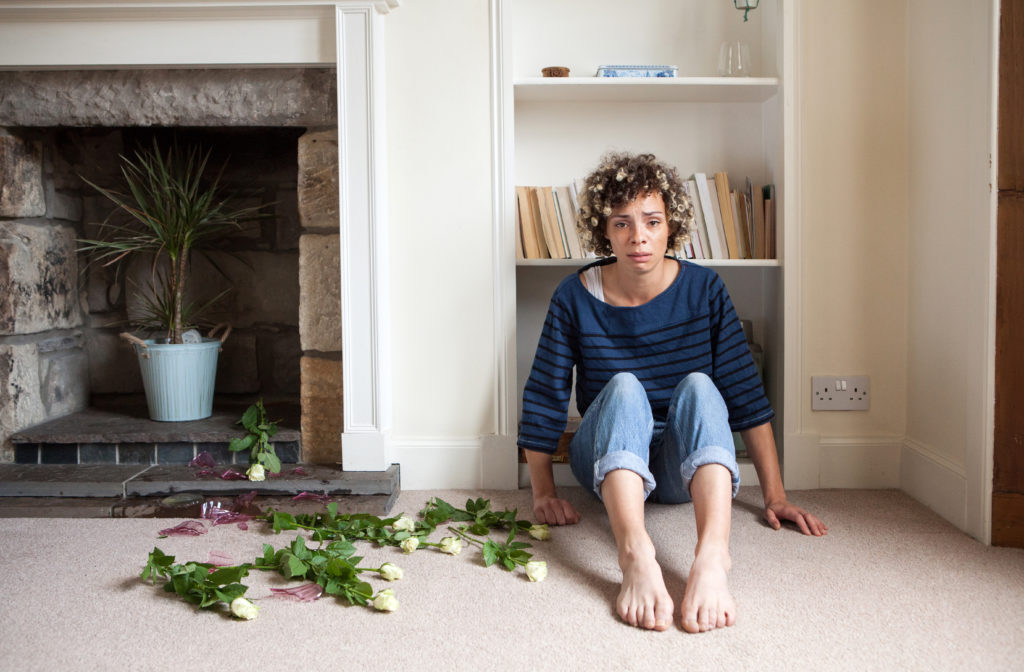Cara Atkinson (2012) explains how she came to work for Solace Women’s Aid and explores issues facing victims of domestic abuse, especially during the pressures of the pandemic.
Following my graduation from St John’s in 2015, I studied for a Master’s at University College, London, before applying for jobs. I wanted to work for a feminist organisation, ideally in the charity sector. I was employed by Women’s Resource Centre, the umbrella organisation for the women’s sector in the UK, to work on a range of projects including the London Violence Against Women and Girls Consortium. I subsequently worked on the Whole Housing Approach project at Standing Together, before moving to Solace in April 2020.

I am the Project Manager for two pan-London partnership projects, Ascent Advice and Counselling and Ascent Advice Plus, which provide specialist counselling and advice services to women and girls affected by domestic abuse, sexual violence or other forms of violence against women and girls, such as forced marriage. I work closely with delivery managers in the 16 partner organisations, as well as with funders and other professionals across London.
Although the projects work with survivors of multiple forms of violence and abuse, domestic abuse is the most common kind of abuse experienced by women contacting Ascent.
Domestic abuse is any form of abuse that takes place within close relationships, including abuse by partners, ex-partners or family members.
As a form of violence against women and girls, domestic abuse is both a cause and a consequence of women’s inequality. It is most commonly perpetrated by men against women, though men can and do experience abuse, and support is available from the Men’s Advice Line.
Often people think that domestic abuse must involve physical violence, but abuse can cover a range of behaviours designed to limit victims’ autonomy and to make them reliant on their abuser.
Abuse can be financial, emotional, psychological or sexual, as well as physical.
Abusers figure out the best ways to frighten and control their victims – for example, a migrant woman may be told by her partner that she will be deported and will lose her children if she leaves him, or a disabled man may be abused by his siblings by having his mobility aids removed.
During the coronavirus pandemic, abusers have used government restrictions and fear of coronavirus to exert and legitimise their control. Government restrictions have often aligned with the tactics that abusers use, limiting opportunities to see and speak to people outside the home.
Fear of coronavirus can be used to control victims – for example, a woman who works in a school may be told to give up her job by her abuser due to a perceived risk of exposure to coronavirus, reducing her financial independence.

Fear of coronavirus is also a significant barrier to women leaving their abusive partners. Before the pandemic, women would often stay with family and friends when fleeing abuse. Many women, particularly those who are vulnerable to severe illness from coronavirus, are now wary of accessing refuge or other shared accommodation due to the possibility of infection. Women also have fewer opportunities to contact support services due to abusers being furloughed or working from home.
It can feel safer to stay in a relationship with an abuser, where the risk is known and can be observed and to some extent mitigated, than to leave and be exposed to new and different risks. Over time, women who are subjected to abuse learn when their abuser is most dangerous and develop strategies to keep themselves safe.
It is often assumed that leaving the abuser makes women safer, although separation is a known risk factor for the escalation of abuse, including fatal violence. Abuse often continues after separation, with many women subjected to stalking, harassment and ongoing abuse linked to shared assets or child contact arrangements.
Abuse is always a choice.
Friends and family members can struggle to understand why it is so difficult for women in relationships with abusive men to leave. It is hard to acknowledge that the person who is supposed to love you is choosing to abuse you.
Abusers may make excuses for their behaviour, such as having mental health problems or a family history of abuse. However, many people experience mental health problems or domestic abuse in childhood and do not abuse their partners or family members. Abuse is always a choice.
If you are worried about yourself, a friend, colleague or family member, there is help available, even during lockdown. If you are experiencing abuse it is legal to leave your home to seek help or to stay elsewhere.
Ascent’s advice and counselling services can be accessed in east and north London by calling Solace on 0808 802 5565 or emailing advice@solacewomensaid.org; in west and south London, contact Women and Girls Network by calling 0808 801 0660, emailing advice@wgn.org.uk, or using WebChat.
If you are looking for support outside London, The National Domestic Abuse Helpline covers England and is open 24/7. Call 0808 2000 247 or use the Helpline website to access email support and LiveChat. Support is available in Scotland from Scotland’s Domestic Abuse and Forced Marriage Hotline on 0800 027 1234 or by emailing helpline@sdafmh.org.uk. LiveChat is also available. Live Fear Free provides support to people in Wales on 0808 80 10 800. Text, email and LiveChat support are also available.
If you are concerned that you may be acting abusively, contact the Respect Phoneline.

